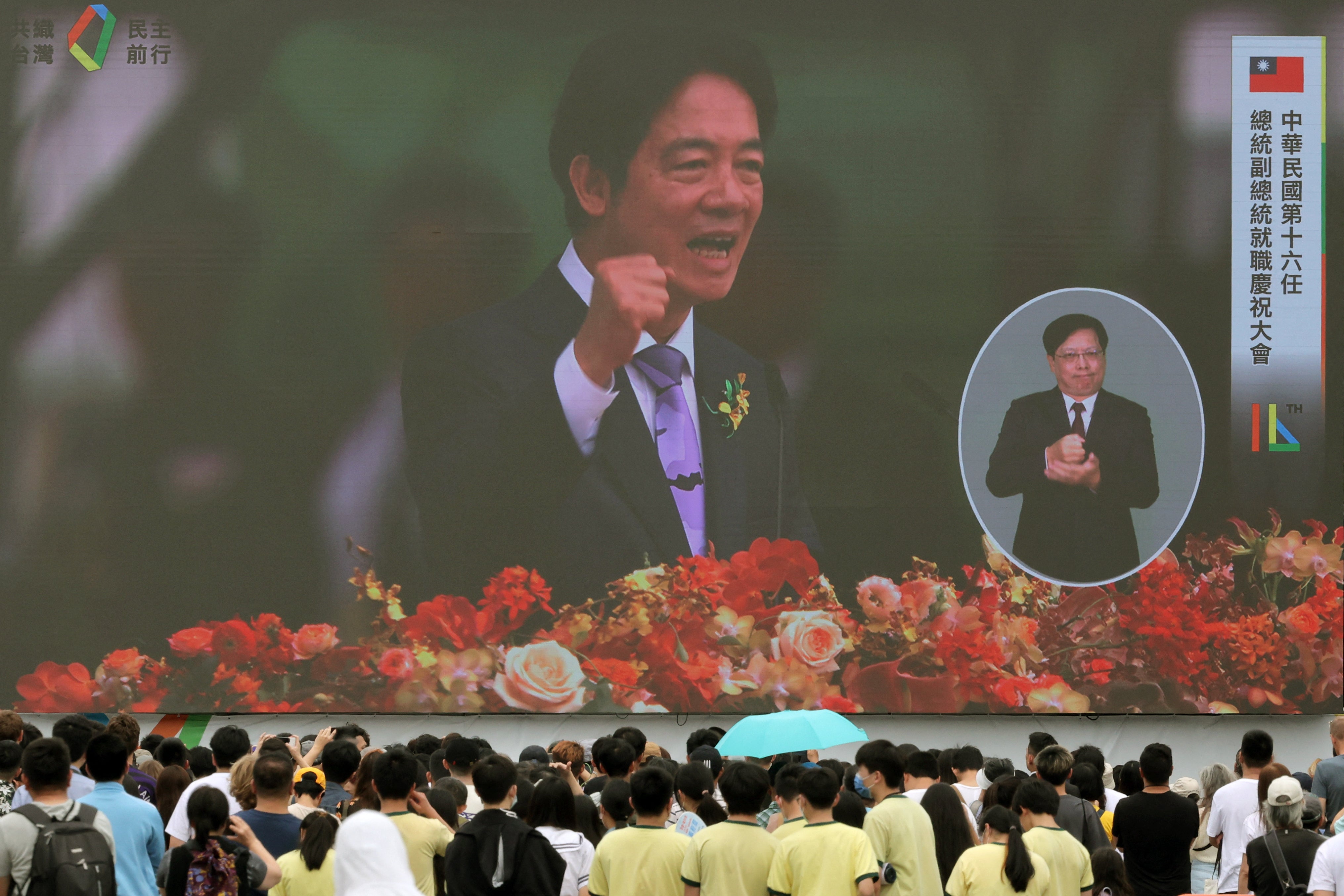Taiwan’s new president tells China to accept reality in defiant first speech
Lai Ching-te is expected to continue growing relationship with the US and further distance from China
Your support helps us to tell the story
From reproductive rights to climate change to Big Tech, The Independent is on the ground when the story is developing. Whether it's investigating the financials of Elon Musk's pro-Trump PAC or producing our latest documentary, 'The A Word', which shines a light on the American women fighting for reproductive rights, we know how important it is to parse out the facts from the messaging.
At such a critical moment in US history, we need reporters on the ground. Your donation allows us to keep sending journalists to speak to both sides of the story.
The Independent is trusted by Americans across the entire political spectrum. And unlike many other quality news outlets, we choose not to lock Americans out of our reporting and analysis with paywalls. We believe quality journalism should be available to everyone, paid for by those who can afford it.
Your support makes all the difference.Lai Ching-te has been sworn in as Taiwan’s new president for a four-year term that is expected to witness a deepening of ties with the West and further distancing from China.
Mr Lai, 64, takes over from Tsai Ing-wen, the island’s first female president who held the office for eight years and fostered closer relations with the US and other Western countries.
Mr Lai was Ms Tsai’s vice-president for four years but is considered a more hardline leader than his predecessor.
China has called him a “dangerous separatist” and a “troublemaker through and through”. Despite the island having its own democratically-elected government, Beijing considers Taiwan a part of China and Xi Jinping has vowed to see it “reunified” with the mainland by force, if necessary.
“When I was young I was determined to practise medicine and save lives. When I went into politics I was determined to transform Taiwan,” Mr Lai said in his first speech as president after his inauguration on Monday.
“Now, standing here, I am determined to strengthen Taiwan.”
Mr Lai called on China to accept the reality of Taiwan and cease its military operations in the Taiwan Strait, the narrow stretch of water between the island and the mainland.
“I hope that China will face the reality of the ROC’s existence,” he said, referring to Taiwan by its official name, the Republic of China.
“Peace is the only option,” he added. “And prosperity gained through lasting peace is our motivation.”

Mr Lai takes office as Taiwan faces a mounting military threat from China, which has been conducting regular air force and naval drills close to the island.
Since Mr Lai’s election victory in January, China has increased military passes through the Taiwan Strait and rebuffed his offer of talks.
On Monday, six Chinese military aircraft crossed the Taiwan Strait’s median line, which serves as the boundary even though it is not recognised by China.
In a message to Beijing, Mr Lai said he hoped China would “face up to the fact of the existence of the Republic of China” and respect the choice of the Taiwanese people.
He added that China should replace “confrontation with dialogue, and exchanges with encirclement, starting with the resumption of bilateral reciprocal sightseeing and tourism, as well as the entry of students to study in Taiwan, so that we can work together in the pursuit of peace and co-prosperity”.
The assembled crowd cheered as Mr Lai added that Taiwan and China “are not subordinate to each other”.
“All our political parties ought to oppose annexation and protect sovereignty. And no one should entertain the idea of giving up our national sovereignty in exchange for political power,” he said, urging Taiwanese people to “come together to safeguard our nation”.

US secretary of state Antony Blinken congratulated Mr Lai and the people of Taiwan for demonstrating the strength of their robust democratic system.
“We look forward to working with President Lai and across Taiwan’s political spectrum to advance our shared interests and values, deepen our longstanding unofficial relationship, and maintain peace and stability across the Taiwan Strait,” he said.
Ahead of the swearing-in ceremony, Beijing’s Taiwan Affairs Office said that the concepts of Taiwanese independence and peace in the strait are “like water and fire”.

Join our commenting forum
Join thought-provoking conversations, follow other Independent readers and see their replies
Comments